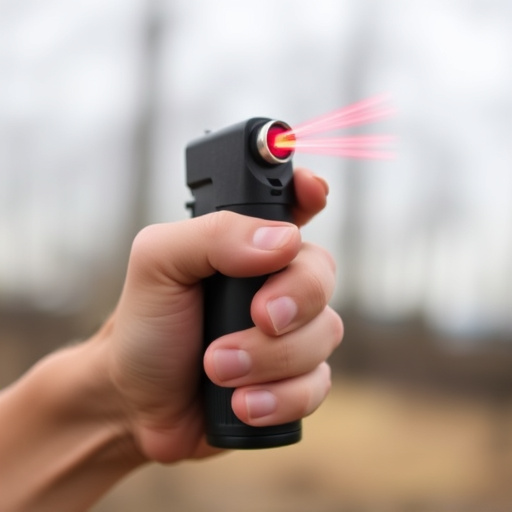Inadvertent exposure to pepper spray causes temporary but unpleasant physical sensations due to its active ingredient, capsaicin. Immediate decontaminating is crucial, involving rinsing affected areas with water for 15 minutes and removing contaminated clothing. Medical attention is recommended if irritation persists. Effective decontamination is vital for personal safety and self-defense practices, including exploring alternative defense strategies and learning basic techniques.
“Staying safe in the face of attack is a vital skill, and understanding aerosol spray defense mechanisms can be life-saving. This article delves into the effectiveness of pepper spray as a deterrent and its impact on the human body. We explore practical steps to decontaminate skin after exposure, emphasizing the importance of prompt action. Additionally, we discuss precautionary measures and alternative self-defense strategies, providing readers with comprehensive knowledge to enhance personal safety. Learn how to effectively manage and prevent harm from pepper spray, ensuring peace of mind in potentially dangerous situations.”
- Understanding Pepper Spray and Its Effects on the Skin
- Steps to Decontaminate Skin After Exposure to Pepper Spray
- Precautionary Measures and Alternative Defense Mechanisms
Understanding Pepper Spray and Its Effects on the Skin
Pepper spray, an aerosol defense mechanism, is designed to incapacitate attackers temporarily through the irritation of eyes and respiratory tracts. While effective, it can also cause unpleasant physical sensations on the skin. The active ingredient in pepper spray, capsaicin, binds to pain receptors, leading to a burning or stinging feeling, redness, and potential swelling.
Proper decontaminating skin from pepper spray is crucial immediately after exposure. Rinse affected areas with copious amounts of clean water for at least 15 minutes to dilute the chemical. Remove any clothing or material that has come into contact with the spray. If irritation persists, seek medical attention. Understanding how to effectively decontaminate skin from pepper spray is an essential aspect of personal safety and self-defense.
Steps to Decontaminate Skin After Exposure to Pepper Spray
After being exposed to aerosol spray, such as pepper spray, it’s crucial to quickly initiate decontamination steps to prevent further irritation and discomfort. Begin by removing any clothing or accessories that may have come into direct contact with the spray, rinsing them thoroughly in clean water. Next, gently wash the affected areas of your skin with mild soap and plenty of water for at least 15 minutes. This step helps to remove any residual pepper spray particles.
For eye exposure, rinse eyes continuously under running tap water for at least 10-15 minutes. Seek immediate medical attention if irritation persists or if you experience vision changes. Ensure that the decontamination area is well-ventilated throughout the process. After thorough washing, apply a soothing cream or lotion to alleviate skin dryness and irritation caused by the pepper spray.
Precautionary Measures and Alternative Defense Mechanisms
When using aerosol spray for defense, it’s crucial to take precautionary measures to ensure safety and minimize harm. After all, self-defense should never cause lasting injury to yourself or others. Following an encounter, immediately decontaminate your skin from pepper spray by rinsing thoroughly with water and mild soap. This simple step can prevent long-term irritation and discomfort.
Consider alternative defense mechanisms for situations where aerosol spray might not be feasible or effective. For instance, using noise or bright lights to startle an attacker can be a reliable option. Additionally, learning basic self-defense techniques or carrying non-lethal weapons like tasers or pepper spray in easily accessible pockets can offer greater control and safety during potentially dangerous encounters.
Aerosol spray, like pepper spray, can cause significant discomfort and temporary incapacitation. However, with proper understanding and decontamination techniques, individuals can effectively protect themselves. After exposure, promptly taking steps to decontaminate skin from pepper spray is crucial for mitigating its effects. This includes thorough rinsing with water and neutralizing agents, as well as seeking medical attention if severe symptoms persist. Precautionary measures like staying informed about local laws and carrying only authorized self-defense tools can further enhance personal safety. By combining these strategies, individuals can maintain their autonomy and security in potentially threatening situations.
